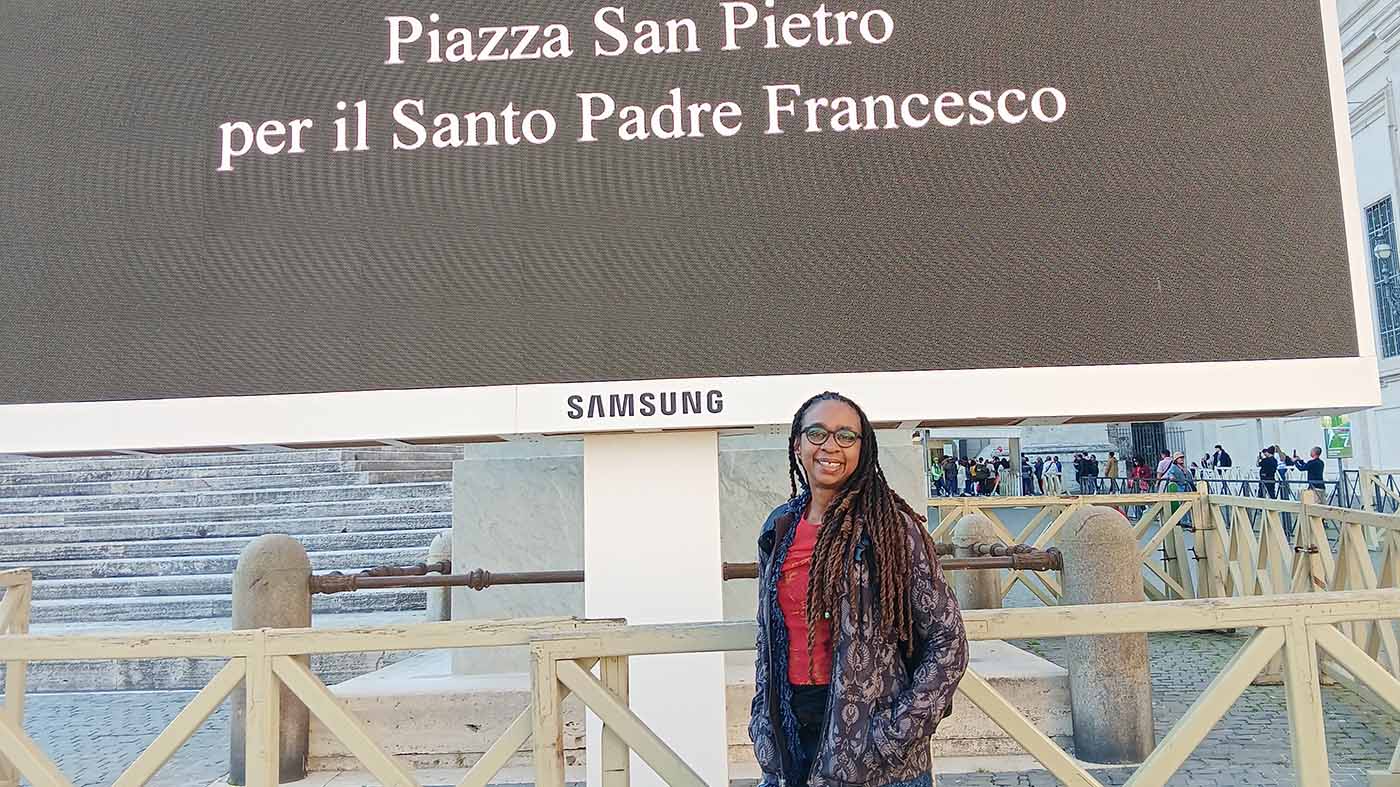Distinguished Professor Angela Harris visited Vatican City last month to participate in the “Jubilee Convenings on Global Climate Reparations and the Catholic Church,” an effort to elevate the issues of climate migration and climate justice, areas in which the Church can create concrete interventions.
The decision to engage with the Catholic Church was strategic.
“In a world where there is a turn toward authoritarianism, it is helpful to turn to the Church, which is not rooted in governmental authority," Harris said. "It has a moral platform that sustains it, even if it doesn’t always live up to its ideals."
A key objective was to establish an ongoing conversation about the communities that are currently being adversely impacted by climate change and power structures.
“Countries of the Global South have been least responsible for climate change,” Harris said. “At the same time, because they are poor and have been exploited for their natural resources for so long, they have the fewest resources to deal with climate-related disasters.”
Taproot Earth, a United States-based secular organization dedicated to advancing climate justice for communities of the Gulf Coast and Global South, organized the event to coincide with the late Pope Francis’s Jubilee this year, with the theme “Pilgrims of Hope,” which encouraged Catholics to renew their faith.
Harris received an invitation to participate based on her work as an attorney and a scholar focusing on environmental and economic justice. She attended as an observer to report key findings and recommendations.
“I am really interested in the intersection between social justice and climate, as well as learning about the Catholic Church’s approach to questions of climate and protecting the earth. It was an opportunity to have these conversations in a different way through the lens of religion and a spiritual directive to protect the Earth,” she said.
Participants hailed from nations across the globe, including Mexico, Democratic Republic of Congo, Guatemala, India, Haiti, Brazil, Canada, and the United States, some of which are particularly vulnerable to climate change. Although the group was unable to meet with Vatican representatives as planned, due to the Pope’s condition at the time (he ultimately succumbed to his illness), Harris said the group made substantial progress.
“As lawyers, we’re largely secular, but connecting with the attendees with native traditions, who brought knowledge and connection with the Earth and what it means to live on the planet, made me think more about the spiritual infusion of values into my work,” she said.
On the policy side, according to Harris, the group focused on concrete steps that they can collectively urge the Church to take, such as forgiving debt in the Global South, issuing passports to stateless climate refugees, and coming to terms with its unjust enrichment through historical colonialism.
“The Vatican is one of the largest landowners in the world," she said. "We would love for the Church to return some land to help those who are stateless or who end up in refugee camps because of climate change-related disasters."
Harris’ participation has inspired her to engage with students, faculty, and staff who are undertaking environmental justice work on campus, as well as with community groups focused on this area.
“For me, the trip was in part about being connected for the first time to Catholic thinking and reflecting on bringing those values and endeavors to the practice of law,” she said.

